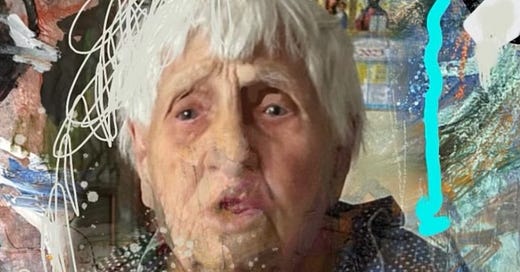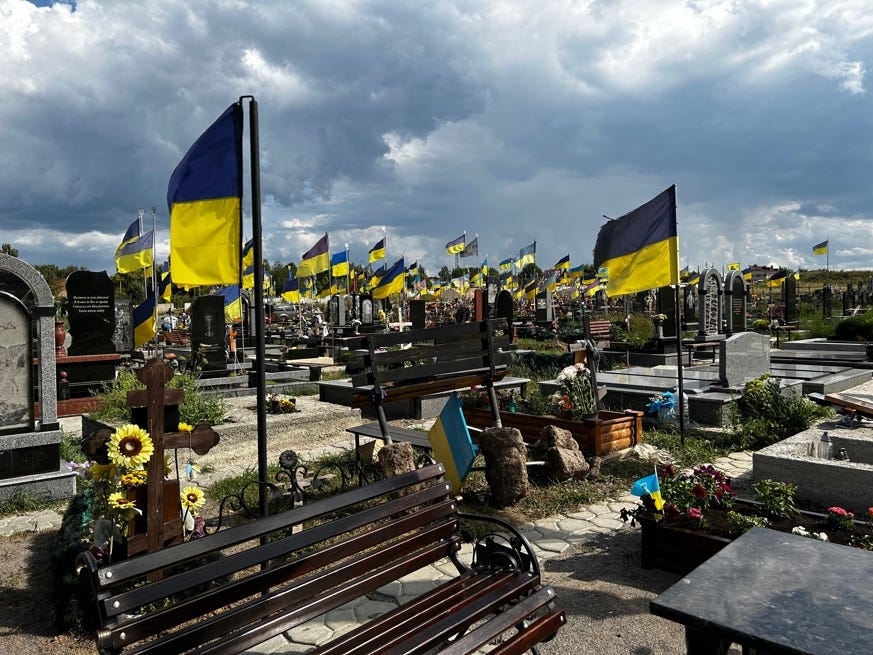“If you will take my advice you will tell us everything…” -Mr. Skinner.
“I don’t think you will much like the truth if I tell you.” -Millicent, from Somerset Maugham’s Before the Party
I find propaganda objectionable. Propaganda in the East is obvious, the infallible Great Leader. But there is propaganda in the West as well, it just isn’t as obvious, which might make it more dangerous. Advertising of course is one form of propaganda, so too some social media. More subtly misleading is an American insistence that stories end happily when, of course, they often don’t.
Stories are important. They aren’t just entertainment. They convey information about the survival of tribe. My podcast with John Yorke describes that. Kurt Vonnegut also, hilariously, described what stories sell, as opposed to what is true. His talk is linked here. According to Vonnegut, popular stories can be reduced to two axes--happy/sad and beginning/end. Cinderella begins sad, jumps to happy (meeting the prince) plummets at midnight, and then, in the end, gets the prince, reaching infinite happiness. Our story machinery gatekeepers – publishers, editors, movie producers – are biased against stories that don’t end happy.
True, for the species to survive we do need hope. But I suspect the reason this structure is viewed as canonical is that you can make more money by getting people to believe Santa Claus is real. This type of thinking is highly dangerous for investing. The only way to make money is to figure out what’s true, not what you’d like to be true.
For instance, “stocks for the long run” is also Santa Claus. Have you looked at the data? It doesn’t work in many countries (Russia, Germany, China, Japan) and even where it works, like the US, there are long, long periods where it doesn’t (1968-1982), (1929-1933, 90% loss).
This might be why investors are so often uncomfortable with politicians. Politicians must offer a dose of Santa Claus to gain office for the same reason media gatekeepers do, it works. It is likely a pathological affection for Santa Claus that helps explain why Trump, who is all about magical thinking, is crushing opponents despite a staggering array of criminal charges.
I bumped up against this gatekeeper bias firsthand both when I published Raising a Thief (deemed too scary) and more recently when the editor of a well-recognized newspaper initially agreed to publish a story about my trip to Ukraine and then backtracked because she found what I gave her “too much of a downer” and prefers “stories which inspire tales of hope and optimism.”
While I don’t normally do this, I’ll share the story with you here and you can decide yourself in a poll further down. The investment stuff comes after this.
Propaganda Runs Thicker Than Blood
“ARRRRR-uuuh,” screamed an air raid alarm on loudspeakers and all of our phones. My heart jumped. When your name is added to the list of what Moscow deems a legitimate target, everything about this war becomes very clear.
So went my first night in Vinnytsia, Ukraine, about 100 miles to the southwest of Kyiv. I had come with my wife to visit her 95-year-old Aunt Zhenya. She helped us with our son when he was born and is now in a bitter dispute with her sister, my wife’s Moscow-based mother, Maria, a dispute mirrored in families throughout the region.
Zhenya. Artist: Jenny Flexner Reinhardt.
Before the war, Zhenya and Maria were inseparable. They are both in their 90s, widows, healthy, the only two left among six siblings. They both married men on the same day who served in the same World War II Soviet air regiment, one a pilot the other a radio operator. They both lost husbands, children, and grandchildren and used to visit each other’s apartments for weeks at a time.
Both sisters are Ukrainian, though they were born in the far East near China and, like most Soviets, grew up speaking Russian. Showing up mattered both to buoy Zhenya and, in a tiny way, Ukraine itself. Russia has killed thousands of civilians, including bombing Vinnitsya’s TV tower, airport, and officers club, the last an attack that killed 28, including a four-year-old girl, Liza Dmitrievna, with Down syndrome.
After decades of official instruction that in the Second World War Russia was both victim and savior, recognizing that Russia is now perpetrating war crimes seems to be a perspective adjustment that Maria and millions just like her simply can not make. After Russia bombed Vinnytsia, Maria ardently supported Moscow’s actions. Now the two sisters no longer speak.
The day after hiding in the air raid shelter, we pulled up to Zhenya’s worn, Soviet-era four-story walk-up. As a child, my wife and her family regularly trekked here from Moscow. Inside, Zhenya had laid out a spread of cucumbers, tomatoes, meat, salads, and golubtsi, or meat wrapped in cabbage.
Zhenya was succinct about current politics.
“He is a parasite,” she said, referring to Putin.
And Zelenskyy?
“A total sweetheart.”
Zhenya is mentally and physically sharp, throwing back shots of cognac in our honor. But she easily gets cold, thus we brought a pile of cash and a package of warm clothes for a winter that may have sporadic electricity if Russia resumes bombing the electrical grid. She is as gentle as Maria is belligerent.
I asked Zhenya where she goes when the air raid sirens go off.
“Into the corridor,” she said, tilting her head. How can her younger sister Maria not be worried about her? The instruction is to have at least two walls between you and the exterior. When we left, I stopped by the nearest proper bomb shelter, a bleak set of stairs into a dark basement, guarded by a swarm of black flies. It didn’t look particularly promising against a 500-kilo Kalibr missile.
After lunch with Zhenya, I visited a local cemetery. Row after row of freshly dug graves, some days old. A young boy, maybe six, walked past me holding flowers guided by his mother and presumably grandfather.
“Where is Papa?”
Gone. The Ukrainian flag flying over the graves is blue and yellow and when you are here it is obvious why.
The summer sky is indeed a brilliant blue and there are endless fields of yellow wheat and sunflowers. Ukraine’s bloody history is related to an open geography and shifting power, including the rise and fall of the Soviet Union, the Polish-Lithuanian Commonwealth, The Hapsburg Empire, and others. Last year, Russians came perilously close to taking control of Vinnytsia. In addition to tanks within driving distance, local neighborhood watches here identified and captured Russian sleeper agents who were activated during the invasion, complete with buried weapons caches.
The outlines of a better future are evident. Vinnytsia is home, like a lot of Ukraine, to sophisticated IT outsourcing serving Fortune 500 clients. That is all a future the Zhenya likely won’t live to see. Over the expanse of Zhenya’s long life, there is progress, even if that progress is jagged and devoured millions of innocent lives. The Kremlin’s effort to subdue 44 million unwilling people by force is one of those jags backward and so primitive Zhenya and many others can see right through it. I suspect, deep down, Maria knows the truth but it is too terrifying to acknowledge. What if hundreds of thousands of people are dying simply because Russia is run by a bad guy? That’s a thought Maria won’t allow herself, at least not yet.
Investments








